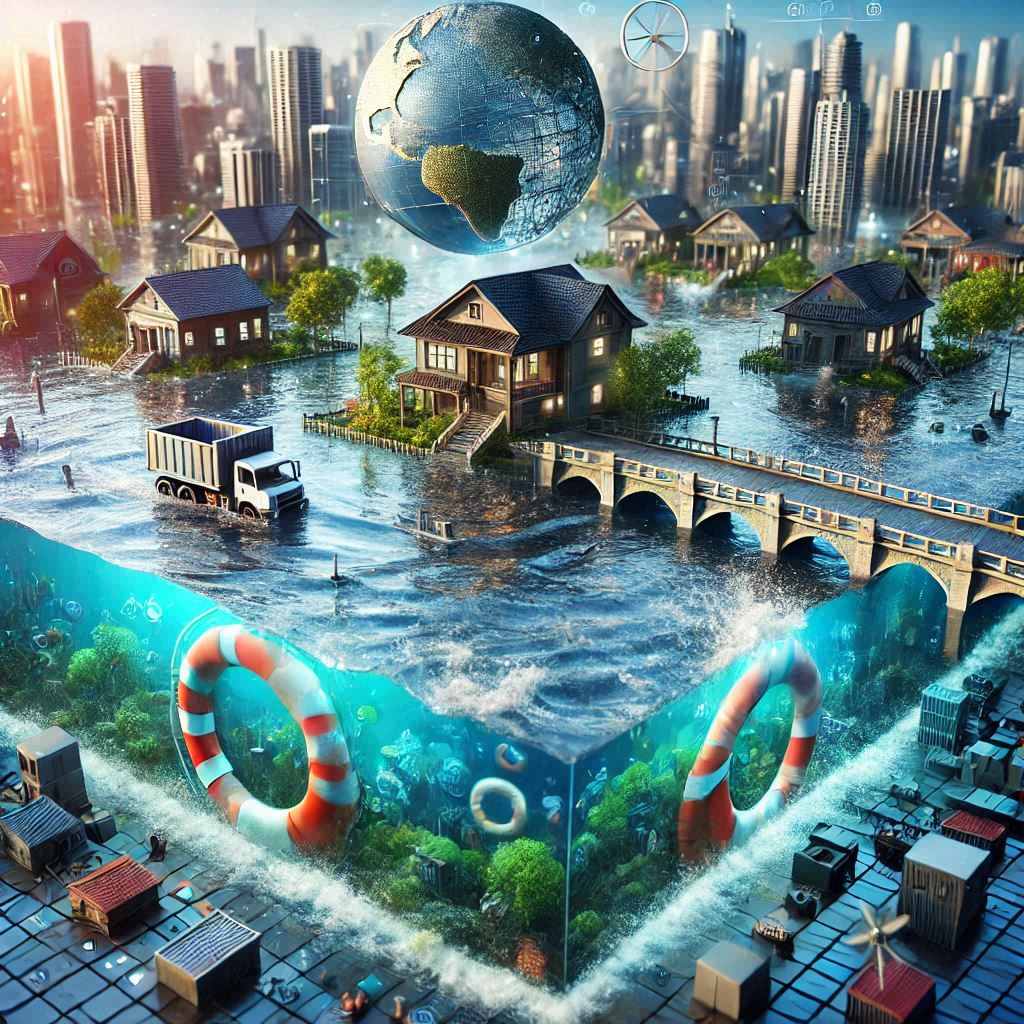
Anxiety About The Environment
Anxious Wait
The wait is weird and unbearable. The fast-paced world has made anxiety become a common idea for many. While it is often seen as a personal struggle, anxiety also has profound effects on how we perceive our surroundings, particularly the environment. This shift in perception, in turn, can have significant implications for our overall mental health.
The Connection Between Anxiety and Environmental Awareness
Heightened Threat Perception
Anxiety heightens our awareness of potential threats and dangers. This increased vigilance can lead to a more acute sensitivity to environmental issues. Concerns about climate change, pollution, and deforestation can become more pronounced for those who are already experiencing anxiety. The constant barrage of negative news related to the environment can amplify these feelings, creating a feedback loop that reinforces anxiety.

The Role of Media in Shaping Environmental Perceptions
Sensationalism and Anxiety
Media plays a critical role in informing the public about environmental issues. However, the tendency to focus on catastrophic events and worst-case scenarios can exacerbate anxiety. Sensational headlines and graphic images can make environmental threats seem immediate and overwhelming, even when they are not directly affecting us. This heightened sense of urgency can lead to increased anxiety and stress.
Eco-Anxiety A Growing Concern
Understanding Eco-Anxiety
The term “eco-anxiety” has emerged to describe the chronic fear of environmental doom. This form of anxiety is particularly prevalent among younger generations who feel a sense of responsibility for the planet’s future. Eco-anxiety can lead to feelings of helplessness, despair, and a decreased sense of agency, which can further contribute to mental health issues.

Impact on Daily Life and Mental Health
Lifestyle Changes and Stress
Anxiety-driven environmental concerns can impact daily life in several ways. For some, it may lead to lifestyle changes such as adopting more sustainable practices, reducing waste, or supporting eco-friendly businesses. While these actions can be positive, the underlying anxiety can cause stress and burnout if the individual feels they are not doing enough.
Mental Health Symptoms
Moreover, the persistent worry about the state of the environment can lead to symptoms of depression, insomnia, and other mental health issues. The feeling of being constantly overwhelmed by environmental problems can diminish one’s quality of life and overall well-being.
Impact on Children and Adolescents
Vulnerability of Young Minds
Children and adolescents are particularly vulnerable to the effects of anxiety related to environmental concerns. Growing up in a world where climate change and environmental degradation are prominent issues can create a sense of insecurity and fear for the future. This can lead to increased anxiety, stress, and other mental health challenges for young people.
Social Media Influence
The Double-Edged Sword
Social media platforms are a double-edged sword when it comes to environmental awareness. While they can spread important information and mobilize action, they can also contribute to anxiety by exposing users to a constant stream of alarming news and images. The pressure to engage in activism and the fear of not doing enough can add to the stress and anxiety experienced by individuals.

The Role of Education
Empowering Through Knowledge
Education can play a crucial role in managing anxiety related to environmental concerns. Providing accurate information about environmental issues, highlighting positive changes, and teaching coping strategies can help individuals manage their anxiety and feel more empowered to take action.
Strategies for Managing Anxiety and Environmental Concerns
Balanced Understanding
Gaining a balanced understanding of environmental issues can help mitigate anxiety. It’s important to stay informed but also to recognize the progress being made in various areas.
Positive Action
Taking tangible steps to contribute to environmental sustainability can provide a sense of control and purpose. Engaging in community initiatives, supporting green policies, and making eco-friendly choices can be empowering.
Mindfulness and Self-Care
Practicing mindfulness and self-care techniques can help manage anxiety. Techniques such as meditation, exercise, and spending time in nature can promote mental well-being.
Seeking Support
Talking to a mental health professional can provide valuable support for those struggling with eco-anxiety. Therapy can offer coping strategies and a safe space to discuss concerns.
Workplace and Environmental Anxiety
Addressing Workplace Stress
The workplace can be a significant source of environmental anxiety. Employees may feel pressure to adhere to corporate sustainability goals or experience stress related to their organization’s environmental practices. Creating a supportive work environment that addresses these concerns can help reduce anxiety and promote mental well-being.
Community Support and Collective Action
Power in Numbers
Community support can play a vital role in alleviating environmental anxiety. Engaging in collective action, such as participating in local environmental initiatives or joining advocacy groups, can provide a sense of belonging and purpose. This collective effort can help individuals feel more empowered and less isolated in their concerns.
The Importance of Resilience
Building Inner Strength
Building resilience is essential for managing anxiety related to environmental issues. Developing coping strategies, fostering a positive mindset, and focusing on personal well-being can help individuals navigate the challenges posed by environmental concerns. Resilience enables individuals to maintain their mental health while actively contributing to environmental sustainability.

Role of Government Policies
Supporting Mental Health Through Policy
Government policies can have a significant impact on reducing environmental anxiety. By implementing and enforcing regulations that promote environmental sustainability, governments can help alleviate public concern and foster a sense of collective action and responsibility.
Personal and Collective Responsibility
Taking Charge
Individuals can take personal responsibility for their environmental impact through daily choices and actions. By adopting sustainable practices, reducing waste, and supporting eco-friendly products, individuals can contribute to a healthier planet and reduce their own anxiety.
Collective Efforts
Collective responsibility involves communities and organizations working together to address environmental issues. Community initiatives, corporate social responsibility, and public campaigns can amplify positive change and reduce anxiety by fostering a sense of collective effort.
The Future Outlook
Hope and Progress
Despite the challenges we should try and stay positive in a future that seems far from anything. Technological advancements, policy changes, and increasing awareness are driving positive change. Emphasizing progress and potential solutions can help alleviate anxiety and inspire action towards a more sustainable future.
Conclusion
Anxiety is a powerful force that shapes our perception of the environment and influences our mental health. While it can lead to increased awareness and positive actions, it is essential to manage anxiety to prevent it from becoming overwhelming. By adopting balanced perspectives and engaging in proactive measures, we can foster both environmental sustainability and mental well-being.
Join the Discussion
How has anxiety about the environment affected your daily life or mental health? Have you found any effective strategies to cope with eco-anxiety?





